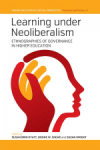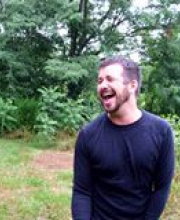| Fight and Build: Envisioning Solidarity Economies as Transformative Politics Thanks to Steve Dubb and NPQ for adapting this essay for their readership. This article is, with publisher permission, adapted from a more extensive journal article, “Fight and Build: Solidarity economy as ontological politics,” published this year by Sustainability Science, volume 17, pp. 1207-1221. |
| Fight and Build: Solidarity Economy as Ontological Politics This essay explores the potential of solidarity economy (SE) as theory, practice, and movement, to engender an ontological politics to create and sustain other worlds that can resolve the existential crises of ecological destruction and historic inequalities. We argue that such a politics is necessary to go beyond the world as it is and exceed the dictates of a dominant modernity—capitalism, white supremacy, patriarchy -- that positions itself as the only singular reality -- or One World World (Law 2011). What is needed are alternatives to development in contrast to alternative developments. Over the past decade, the SE movement in Massachusetts has advanced a fight and build approach, which has reframed economy as a matter of concern, as something that communities can, and already do, shape themselves – and that powerfully disrupts the reality of a singular capitalist economy. At the same time, the heterogeneous elements of SE are caught up in and assembling political projects with multiple orientations: modernist, social justice, and ontological (Escobar 2020). SE movement can remain stuck in a modernist politics of growing and scaling businesses and jobs. Even though a social justice approach attends to power and is more amenable to a relational view of reality where things only exist in interconnection, it too can remain mired in One World World liberal politics of redistribution and market ‘solutions’. How SE movement might actualize an ontological politics is a matter of care, an attunement to how relational worlds are coming into being and maintained. As an ontological politics, SE is not about economy qua economy at all, but about creating and sustaining worlds, pluriversal realities where we can be in solidarity with other people, beings, and planetary life systems. |
| Conjunctural Politics, Cultural Struggle, and Solidarity Economy: A Conversation with Kali Akuno In this expansive conversation, we explore the current political-cultural conjuncture in the United States. Thinking through the responses to the pandemic and the Floyd Rebellion, Akuno analyzes the violence of and tensions between an escalating white supremacy, on one hand, and an intractable (neo)liberalism that is attempting to capture and channel the energies and ideas of the Left, on the other. Akuno locates direction for the Left amid the flourishing of mutual-aid projects and the possibility of a politicized solidarity-economy movement that can fight for and build practices, relationships, and institutions beyond the limitations of the market, the state, and what is deemed to be practical. |
| Towards An Ontological Politics of Collaborative Entanglement: Teaching and Learning as Methods Assemblage In this essay I reflect on and theorize efforts to teach, learn, and advance solidarity economy, a movement and design project to create the conditions for community determination and collective well-being. I draw from five years of ethnographic work and two years of teaching efforts to reassemble the resources at hand into a pedagogical intervention along the lines of what Jon Law (2004) describes as a “methods assemblage,” a set of practices, techniques, and relations that work to organize and condense particular realities. I explore how a methods assemblage of solidarity economy can open epistemological, ideological, and material trajectories toward other ways of being in the world. |
| From Worker Self-Directed Enterprise Analysis to Solidarity Economy Movement In Transcending Capitalism Through Cooperative Practices, Mulder shows how exploitation, and non-exploitation, can be analytically discerned, and she describes some various contexts in which non-exploitation exists. Mulder's analysis, analytical approach, and contextual descriptions, surface and prompt important questions around the conditions of possibility for imagining and actualizing economic difference and transformation. To help elaborate and begin to address these questions, I turn to a growing movement in Massachusetts in which communities are crafting and organizing around their own conditions of possibility in innovative and powerful ways. |
| Learning Under Neoliberalism: Ethnographies of Governance in Higher Education As part of the neoliberal trends toward public-private partnerships, universities all over the world have forged more intimate relationships with corporate interests and more closely resemble for-profit corporations in both structure and practice. These transformations, accompanied by new forms of governance, produce new subject-positions among faculty and students and enable new approaches to teaching, curricula, research, and everyday practices. The contributors to this volume use ethnographic methods to investigate the multi-faceted impacts of neoliberal restructuring, while reporting on their own pedagogical responses, at universities in the United States, Europe, and New Zealand. 
|
| Learning Away From Neoliberalism: Lines of Connection to Other Worlds In this essay, I envision the university, not simply as a discreet institution with formal boundaries to attend to and defend from neoliberal and conservative assaults, but as a location of possibility from which to locate and advance projects that connect students and others to the possibility of other economic worlds. |
| Solidarity Economy and Community Development: Emerging Cases in Three Massachusetts Cities Solidarity Economy is a movement that can build power within and across scales and win supportive policy and public resources. Using the development of SE in Boston, Worcester, and Springfield, Massachusetts as examples, the article discusses the possibilities and challenges for SE projects to negotiate across differing values and politics, racial and class divides, and the challenge of accessing startup capital and building finance. |
| Making the Green Economy: Politics, Desire, and Economic Possibility This paper explores and compares the activities of two green economy coalitions. I investigate how social actors, including myself, have been negotiating, responding to, and producing the meaning of the green economy, and the meaning of "the economy" writ-large, through our political efforts. I am particularly interested in thinking about the ways in which the expression of different desires for economy can lead to openings, or closures, for the construction of non-capitalist relationships, initiatives, and enterprises. |
| Introduction: Engaged Scholarship for Non-Capitalist Political Ecologies In this introduction to a special section on non-capitalist political ecologies in the Journal of Political Ecology, we discuss how engaged researchers can significantly contribute to a meaningful "ecological revolution" by (1) examining the tremendously diverse, already-existing experiments with other ways of being in the world, (2) helping to develop alternative visions, analyses, narratives, that can move people to desire and adopt those ways of being, and (3) actively supporting and constructing economies and ecologies with alternative ethical orientations. |
| Warm Bodies: Zom-Rom Solidarity Econ A review of the film Warm Bodies (2013), a dark-comedy featuring zombies and romance. We read Warm Bodies as inhabiting today's growing social imaginary and belief that even amidst growing inequalities, austerity and unfolding ecological challenges, another world is truly possible. |
| Kalamazoo's Promise: Exploring the Violence of Economic Development This essay explores the discursive production of numerous, well-meaning efforts to respond to social and economic restructuring in Kalamazoo, Michigan. Drawing upon the work of Slavoj Zizek, we suggest that the focus on what is perceived to be reasonable, or realistic, is maintained by and helps to maintain, the normal workings of capitalist exploitation which appear as inevitable, natural, or altogether invisible. |
| Beyond Critique: Anthropology of and for Non-capitalism This short essay considers the limitations of critical anthropological theory and in particular critiques of capitalism. We suggest that anthropology's emancipatory potential can be found in an approach that embraces anthropology's moral optimism and merges critique with a politics of possibility. |
| Book Review: Tyranny of Choice This is a short review of Renata Salecl's ‘The Tyranny of Choice.’ Salecl shows us that our actions are not driven entirely by the rational mind but are influenced by unconscious desires that are themselves produced by a relationship to the symbolic order. One implication is that we can't simply will ourselves a new world. Stepping out of the political and ethical morass of fighting over which form of capitalism is better or more humane might require more than rational discussions about the vagaries of capitalism, speaking truth to power, or making rational demands on the state. |
| The Progressive Struggle to Save Capitalism In this editorial we review Joseph Stiglitz's Price of Inequality. While we admire his analysis of the problems caused by economic inequality, we question whether or not the argument for progressive, regulated capitalism is the best thing we can hope for and work towards. |
| Occupy Wall Street: A Gift for the Economy Written in the early weeks of the Occupy movement, this short essay understands Occupy as reflecting and releasing dormant and suppressed economic values from which to imagine and practice a new world. |


